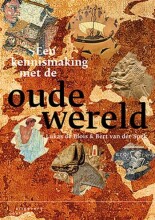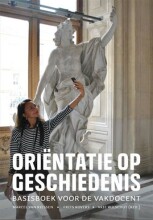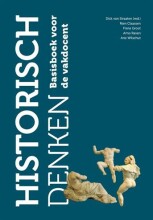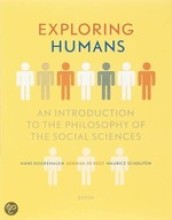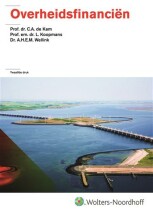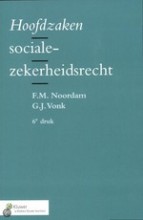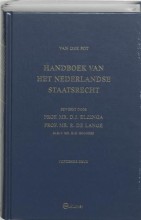Samenvatting: Mckay - A History Of Western Society
- Deze + 400k samenvattingen
- Een unieke studie- en oefentool
- Nooit meer iets twee keer studeren
- Haal de cijfers waar je op hoopt
- 100% zeker alles onthouden
Lees hier de samenvatting en de meest belangrijke oefenvragen van McKay - A History of Western Society
-
7 Late Antiquity (= Late Oudheid)
-
7.1.1 Introduction (pg. 201)
Dit is een preview. Er zijn 1 andere flashcards beschikbaar voor hoofdstuk 7.1.1
Laat hier meer flashcards zien -
(Centrale vraag van dit hoofdstuk): Wat waren enkele belangrijke oorzaken en gevolgen van de migratie van de barbaarse volkeren (Volksverhuizing)?
Oorzaken: eroorzaakt door verschillende factoren, waaronder economische druk (betere landbouwgrond, levensomstandigheden), sociale onrust (interne en externe conflicten), religieuze conflicten (vervolging), politieke instabiliteit en oorlogen.
Gevolgen: De komst van barbaarse volkeren kon leiden tot conflicten met bestaande bevolkingsgroepen en kon ook leiden tot culturele en demografische veranderingen in de regio's waar ze naartoe migreerden. Sommige van deze migraties hadden ook invloed op de politieke en economische ontwikkeling van deze regio's. -
Waarom werden er soldaten/troepen van andere volkeren toegelaten in het Romeinse leger?
Italianen hadden door burgerrechten minder interesse om in het leger te gaan. -
Met welke NIET-Romeinse mensen werden de Romeinse legers aan het eind van de Romeinse tijd aangevuld?
Gevangen genomen mensen van andere stammen, tot slaaf gemaakte volkeren. -
Hoe kwam het dat in de 5e eeuw uiteindelijk een Gotische generaal de leiding had over het West-Romeinse rijk?
In de eeuwen ervoor waren veel externe volkeren (barbaren) opgenomen in het Romeinse Rijk, verbonden en zij namen langzamerhand steeds meer belangrijke militaire, rechterlijke en bestuurlijke functies in. -
Waarom migreerden "barbarians" (externe volkeren)?
- Ze zochten meer voedselvoorzieningen;
- Ze zochten betere landbouwgrond;
- Ze zochten een warmer klimaat.
- Ze werden opgejaagd door andere volkeren (Hunnen);
- Vanwege conflicten met andere volkeren;
- Ze zochten meer voedselvoorzieningen;
-
In welke eeuwen kwamen de Hunnen op en zorgden voor een Volksverhuizing van andere (opgejaagde) volkeren?
In de 4e en 5e eeuw na Christus. -
7.1.2 Celtic and Germanic People in Gaul and Britain (pg. 201)
Dit is een preview. Er zijn 11 andere flashcards beschikbaar voor hoofdstuk 7.1.2
Laat hier meer flashcards zien -
Sinds wanneer bevolken de Kelten in Centraal Europa?
Sinds de 5e eeuw (Iberische deel, Hongarije, Britse eilanden). -
Wie versloeg vele Keltische stammen in zijn opmars naar het Gallië en het noorden + wanneer?
Julius Caesar tussen 58 en 50 voor Christus. -
Wat deden Kelten als ze door de Romeinen veroverd werden?
Ze pasten zich aan de Romeinse cultuur aan. -
Wat brachten Romeinse kooplieden zoal richting Gallië en Brittannië?
Romeinse klederdracht, badhuizen, amphitheaters, landhuizen, luxe goederen en het Christendom.
- Hogere cijfers + sneller leren
- Niets twee keer studeren
- 100% zeker alles onthouden
Onderwerpen gerelateerd aan Samenvatting: Mckay - A History Of Western Society
-
Late Antiquity (= Late Oudheid) - Migration, Assimilation & Conflict - Celtic and Germanic People in Gaul and Britain
-
Late Antiquity (= Late Oudheid) - Migration, Assimilation & Conflict - Visigoths and Huns
-
Late Antiquity (= Late Oudheid) - Migration, Assimilation & Conflict - Germanic Kingdoms and the end of the Roman empire
-
Late Antiquity (= Late Oudheid) - Christian Missionaries and Conversion
-
Late Antiquity (= Late Oudheid) - The Byzantine Empire
-
Europe in the Early Middle Ages (600 - 1000) - The spread of Islam
-
Europe in the Early Middle Ages (600 - 1000) - Frankisch Rulers and their Territories
-
Europe in the Early Middle Ages (600 - 1000) - Early Medieval Culture
-
Europe in the Early Middle Ages (600 - 1000) - Invasions and migrations
-
Europe in the Early Middle Ages (600 - 1000) - Political and Economic decentralization - Manorialism, serfdom and slave trade
-
Looking back - Looking ahead + State and Church in the High Middle Ages
-
Life in villages and cities of the high Middle Ages - Village life - The manor
-
Life in villages and cities of the high Middle Ages - Village life - Home life
-
Life in villages and cities of the high Middle Ages - Popular Religion - Death and the afterlife
-
Life in villages and cities of the high Middle Ages - Towns and economical revival - The rise of towns
-
Life in villages and cities of the high Middle Ages - Towns and economical revival - Merchant and craft guilds
-
Life in villages and cities of the high Middle Ages - Towns and economical revival - The revival of long-distance trade
-
Life in villages and cities of the high Middle Ages - Towns and economical revival - Business procedures
-
Life in villages and cities of the high Middle Ages - Towns and economical revival - The commercial revolution
-
Life in villages and cities of the high Middle Ages - Urban life (306
-
Life in villages and cities of the high Middle Ages - Literature and architecture (313 - Vernacular literature and drama
-
Life in villages and cities of the high Middle Ages - Literature and architecture (313 - Churches and cathedrals
-
The Later Middle Ages - Prelude to Disaster
-
The Later Middle Ages - The Black Death - Spread of the disease
-
The Later Middle Ages - The Black Death - Care of the sick
-
The Later Middle Ages - The Black Death - Economic, religious and cultural effects
-
The Later Middle Ages - The Hundred Years' war + Causes
-
The Later Middle Ages - Causes - English successes
-
The Later Middle Ages - Changes to the church - The Babylonian Captivity and Great Schism
-
The Later Middle Ages - Changes to the church - Lay piety and mysticism
-
The Later Middle Ages - Social unrest in a changing society
-
Wealth and Power in Renaissance Italy - City-States and the balance of power - (Tekst) A sermon of Savonarola
-
European Society in the Age of the Renaissance - Art and the artist
-
European Society in the Age of the Renaissance - Social hierarchies - Race and slavery
-
European Society in the Age of the Renaissance - Social hierarchies - Wealth and the nobility
-
European Society in the Age of the Renaissance - Social hierarchies - Gender roles
-
European Society in the Age of the Renaissance - Politics and the state in Western Europe
-
Reformations and religious wars (1500-1600) - The early reformation
-
Reformations and religious wars (1500-1600) - The reformation and german politics
-
Reformations and religious wars (1500-1600) - The spread of protestant ideas
-
Reformations and religious wars (1500-1600) - The catholic reformation
-
Reformations and religious wars (1500-1600) - Religious violence
-
European exploration and conquest - World contacts before Columbus
-
European exploration and conquest - The European voyages of discovery - Causes of Euroean expansion
-
European exploration and conquest - The European voyages of discovery - Technology and the rise of exploration
-
European exploration and conquest - Conquest and settlement
-
European exploration and conquest - The era of global contact
-
Absolutism and Constitutionalism - Seventeenth-Century Crisis and rebuilding


















